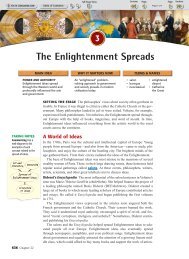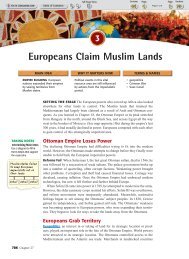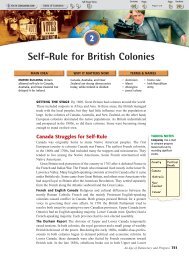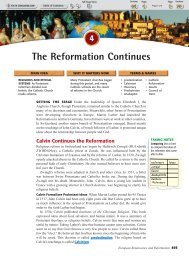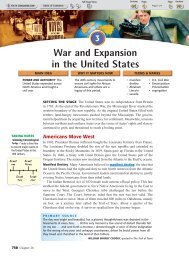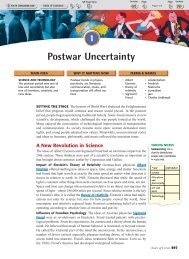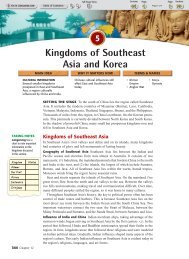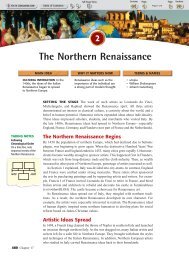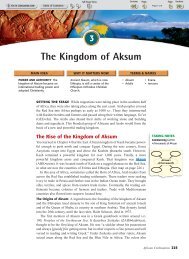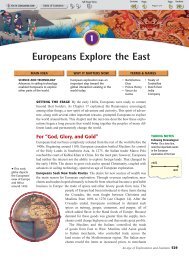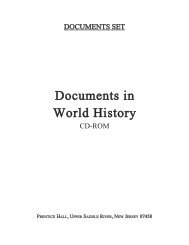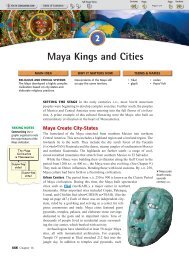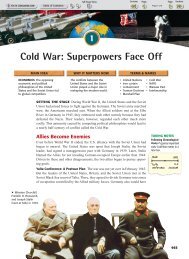Feudalism in Europe - Euro-webonline.com
Feudalism in Europe - Euro-webonline.com
Feudalism in Europe - Euro-webonline.com
- No tags were found...
Create successful ePaper yourself
Turn your PDF publications into a flip-book with our unique Google optimized e-Paper software.
The Medieval ManorThe medieval manor varied <strong>in</strong> size. Theillustration to the right is a plan of a typicalEnglish manor.1Manor HouseThe dwell<strong>in</strong>g place of the lord and hisfamily and their servants2345678Village ChurchSite of both religious services andpublic meet<strong>in</strong>gsPeasant CottagesWhere the peasants livedLord’s DemesneFields owned by the lord and workedby the peasantsPeasant CroftsGardens that belonged to the peasantsMillWater-powered mill for gr<strong>in</strong>d<strong>in</strong>g gra<strong>in</strong>Common PastureCommon area for graz<strong>in</strong>g animalsWoodlandForests provided wood for fuel.362 Chapter 13typically consisted of the lord’s manor house, a church, and workshops. Generally,15 to 30 families lived <strong>in</strong> the village on a manor. Fields, pastures, and woodlandssurrounded the village. Sometimes a stream wound through the manor. Streamsand ponds provided fish, which served as an important source of food. The mill forgr<strong>in</strong>d<strong>in</strong>g the gra<strong>in</strong> was often located on the stream.The manor was largely a self-sufficient <strong>com</strong>munity. The serfs and peasantsraised or produced nearly everyth<strong>in</strong>g that they and their lord needed for daily life—crops, milk and cheese, fuel, cloth, leather goods, and lumber. The only outsidepurchases were salt, iron, and a few unusual objects such as millstones. These werehuge stones used to gr<strong>in</strong>d flour. Crops grown on the manor usually <strong>in</strong>cluded gra<strong>in</strong>s,such as wheat, rye, barley, and oats, and vegetables, such as peas, beans, onions,and beets.The Harshness of Manor Life For the privilege of liv<strong>in</strong>g on the lord’s land, peasantspaid a high price. They paid a tax on all gra<strong>in</strong> ground <strong>in</strong> the lord’s mill. Anyattempt to avoid taxes by bak<strong>in</strong>g bread elsewhere was treated as a crime. Peasantsalso paid a tax on marriage. Wedd<strong>in</strong>gs could take place only with the lord’sAnalyz<strong>in</strong>g CausesHow might thedecl<strong>in</strong>e of tradedur<strong>in</strong>g the earlyMiddle Ages havecontributed to theself-sufficiency ofthe manor system?



